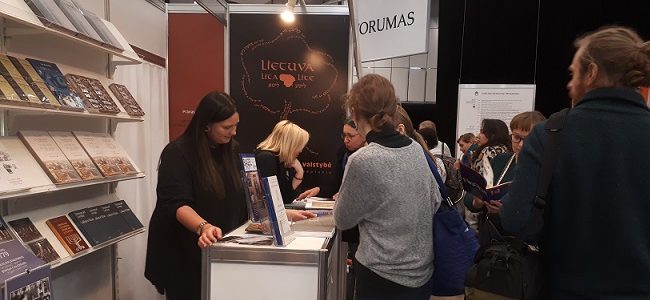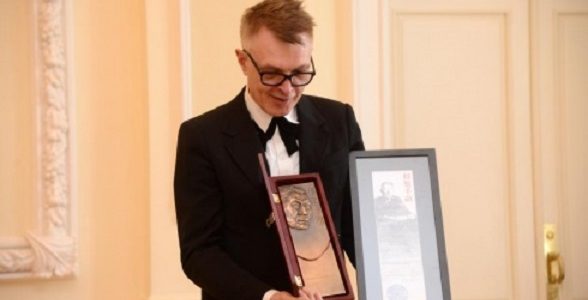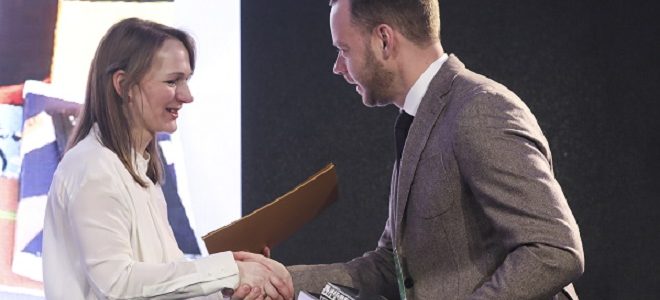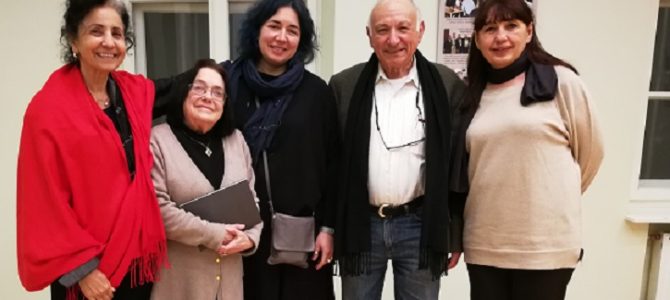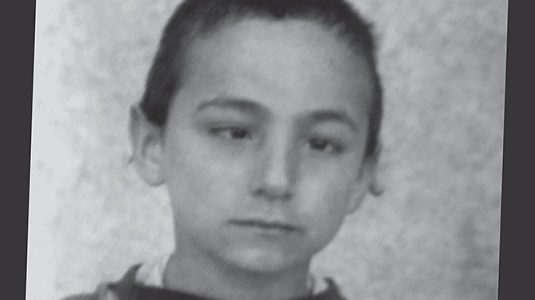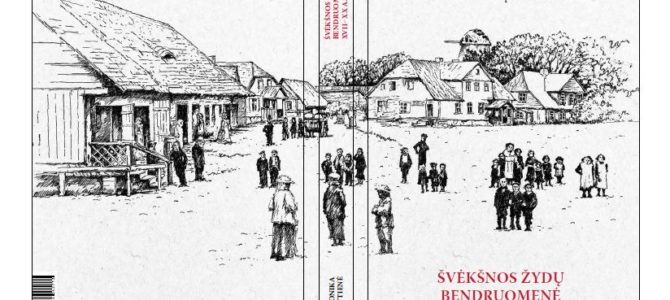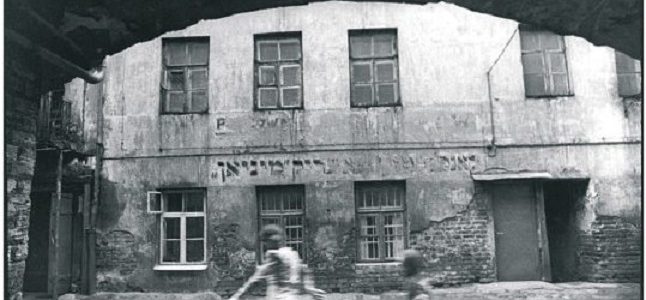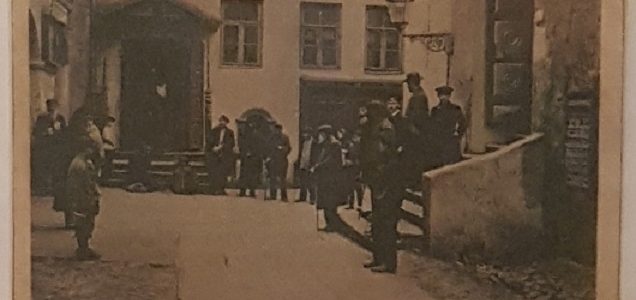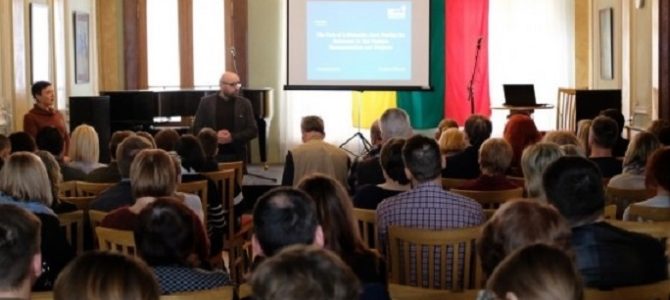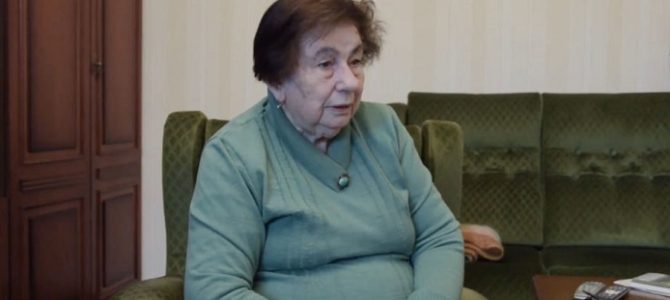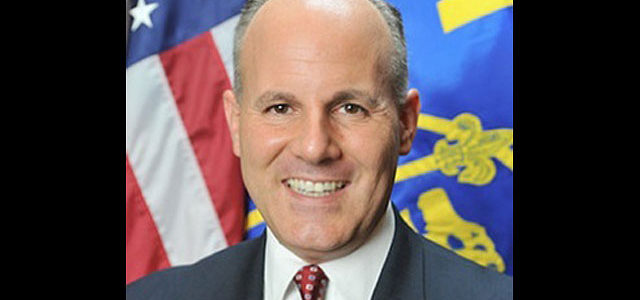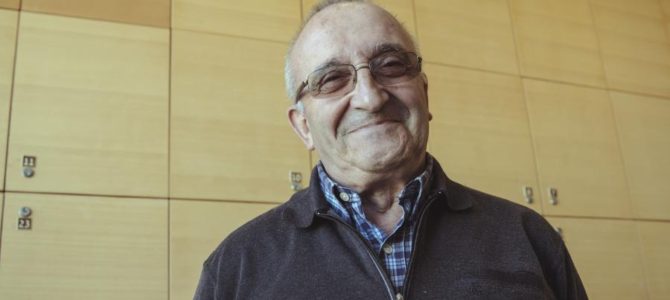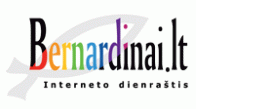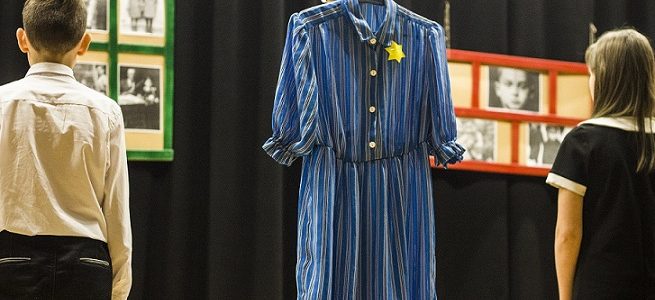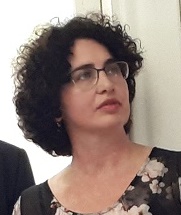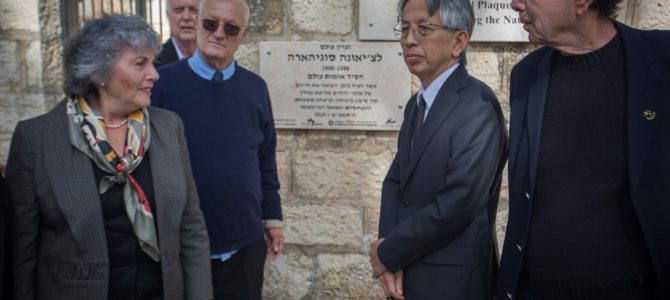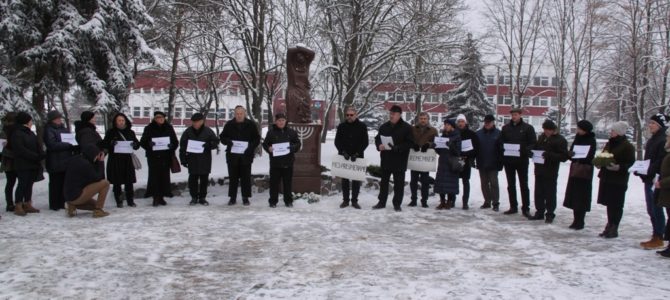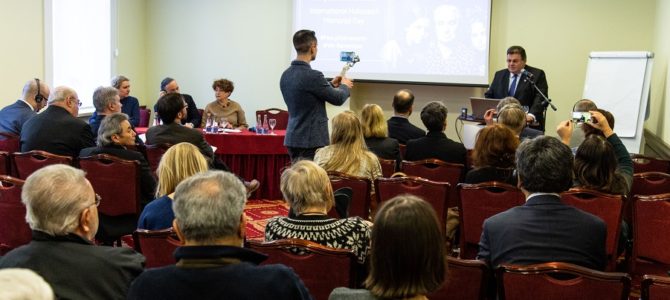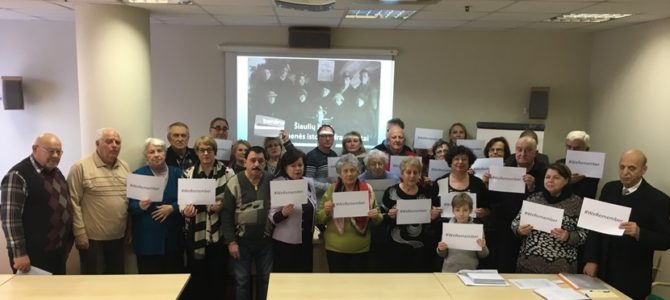Almost 68,500 people visited the Vilnius Book Fair this year on its 20th anniversary. There were more than 550 events for visitors to chose from over four days. The Lithuanian Jewish Community had a table this year for the second year in a row presenting books published with partial support from the Goodwill Foundation.
The table was extremely popular with visitors all four days. Some came to browse, others to talk about Jewish culture and share their memories. There was much interested in Yitzhak Rudashevski’s Vilnius ghetto diary recently published in Lithuanian translation. This book was recognized by the Vilnius Book Fair as one of the best-designed books of 2018. Readers also expressed interest in and bought Uri Leviatan’s From Hand to Hand and Ruth Reches’s Hebrew dictionary in Lithuanian, among others.
Those wishing to purchase these books and others are invited to come to the Goodwill Foundation at Pylimo street no. 4 in Vilnius or to visit the foundation’s internet store at https://gvf.lt/e-parduotuve/


